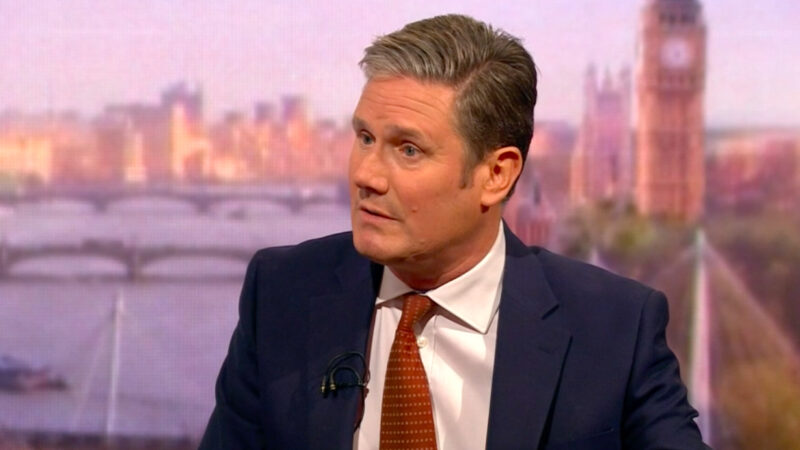
The leadership election was the most harmonious in living memory, moving from the amicable to the positively soporific. With global events crowding out the scene, it could hardly have been otherwise, but all three candidates deserve credit for avoiding new divisions. And Keir Starmer has won a mandate despite – or perhaps helped by – a programme largely devoid of startling innovations in policy. As a result, the mandate that he has won remains slightly enigmatic: the individual policies are welcome, but the focus and priorities are not yet clear.
Which, as it turns out, is just as well. With the British and indeed global landscape changing in ways that nobody can predict, a new policy that looked fresh and exciting in January 2020 would have looked dated by May and archaic by 2024. There will be plenty of time to develop new policies to meet the new world that awaits us when the pandemic is finally subdued.
So, Keir has won. What should he do next?
Refresh the shadow cabinet – but don’t uproot the party.
There are commentators who urge that he starts with a clear-out of “Corbynistas” from all levels of the party: they look forward to years of ceaseless conflict. These commentators do not noticeably have our best interests at heart: in many cases, what they want is a Tory-lite opposition to whom power can safely be rented out on infrequent occasions. Moreover, the party is full of people who voted for Jeremy Corbyn and supported his leadership loyally, but have opted to give Keir Starmer a fair wind. It is eccentric to purge your own supporters. Nor is the public interested. If our answer to the global crisis is to argue among ourselves, we will acquire a label of stupefying irrelevance.
That said, the shadow cabinet has been largely unchanged for a long time and there is extensive talent outside it. It is no disrespect to the current shadows to want to see a fresh wind. Keir takes over the party with a considerable mandate. He should use it to move decisively to bring back seasoned veterans and bring on interesting newcomers.
Bring forensic precision to the coronavirus fight.
Most of us are trying to be non-partisan in this time of extreme crisis. We cannot sensibly score cheap points when a thousand people may die the next day. However, being non-partisan does not mean passively endorsing ineffective policies. And the government’s efforts so far have been flawed in a way that Keir Starmer is ideally trained to address. They are characterised by lack of precision, by unexplained changes of direction, and by a certain amiable woolliness which has served the Prime Minister well over the years, but which is not what most people feel is needed at the moment.
We need a credible plan for testing: tomorrow, next week, next month. We need to know who will be tested first, and who next. We need clarity on what the lockdown means – one walk or several? How far? Can you drive to get there? Should you shop frugally every few days, or stock up once a week? People are quite unprecedentedly willing to follow the government’s lead, and it is simply infuriating that the details swim before our eyes, subtly changing from day to day.
But there is a party political priority too. The vulnerable who look to us need to be championed, not just with applause and nice headlines but concrete priority. NHS workers are being flung into the battle with shamefully, pitifully inadequate equipment. People who rent whose incomes have vanished merely have a stay of execution before eviction. Universal Credit remains leisurely and bureaucratic – exactly the wrong characteristics for an emergency safety net. Pensioners face what promises to be galloping inflation on a fixed income.
Policy is visibly being made up on the hoof, and it is crucial that Labour points out the gaps. Many of the people who we seek to represent are facing complete ruin: they need champions. If not us, who?
Look to the future.
Right now, and probably for the rest of 2020, nobody wants policies for 2024. But there will come a point when the dust settles, the economy staggers off the floor, and the groundwork starts to be laid for recovery. Just as in 1945 after the last global cataclysm, the country will not want simply to return to the failed models of the past. Just like Clement Attlee’s Labour Party, we should offer serious competence in rebuilding a better country than we had before – fairer, more equal, greener, more participatory.
People have put up with a great deal in the last two decades: never-ending austerity, the endlessly divisive Brexit trauma, and now the grief and economic devastation caused by the virus. They will not be in a mood for facile populism or even facile centrism, but for a coherent reconstruction plan with progressive values proposed by a serious leadership. Keir Starmer, leading what is now the largest socialist party in the world, is remarkably well-suited to provide exactly that. Those commentators looking forward to a divisive Labour civil war are going to be surprised just how well the party and the wider country respond.




More from LabourList
‘Council Tax shouldn’t punish those who have the least or those we owe the most’
Two-thirds of Labour members say government has made too many policy U-turns, poll reveals
‘Two states, one future: five steps on the path to peace for Israelis and Palestinians’